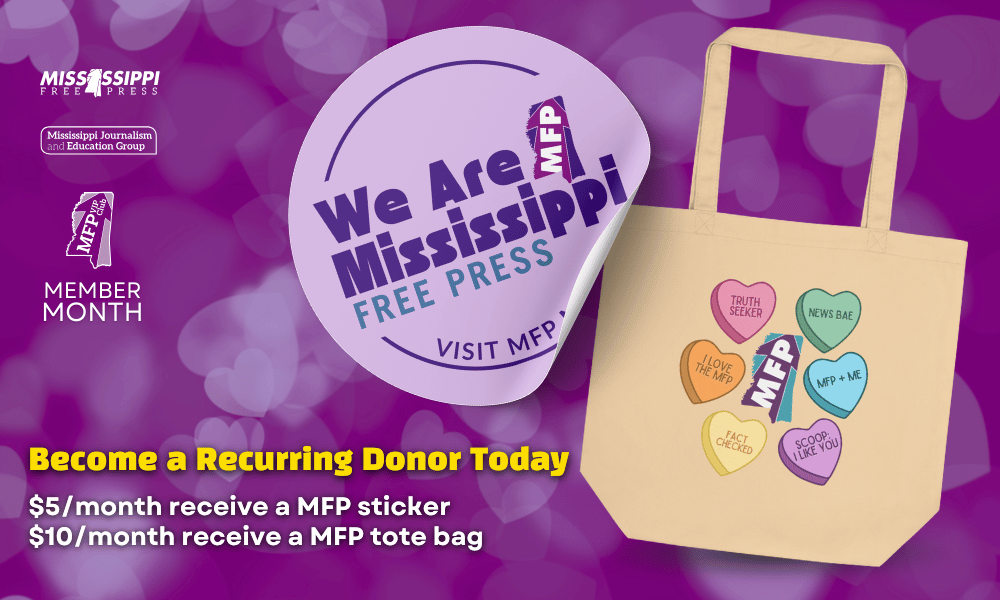Mississippi continues to lead the nation in infant deaths after reaching the highest level since 2015, a Sept. 12, 2023, report from the U.S. Centers for Disease Control shows.
The infant mortality rate measures infant deaths from birth until a baby’s first birthday. The Magnolia state had 330 infant deaths in 2021 at a rate of 9.39 per 1,000 live births, up from 288 deaths at a rate of 8.12 per 1,000 in 2020. The last time the infant death rate was this high was in 2015, when it reached 9.45. The CDC will not release 2022 data until next year.
One infant died of COVID-19 in 2021, the Mississippi State Department of Health reported. The COVID-19 vaccine was not available for infants in 2021, but the U.S. Centers for Disease Control said in 2022 that it is safe for children as young as six months old to take.
The latest data comes at a time when experts are expecting an additional 5,000 births a year following the U.S. Supreme Court’s June 2022 decision in Dobbs v. Jackson Women’s Health Organization that banned nearly all abortions in the state.
Dr. Daniel Edney said his top two priorities as state health officer are infant and maternal mortality, saying they are Mississippi’s “most egregious public health challenge.”
‘A Complicated Problem’
Mississippi also saw its fetal death rates double among unvaccinated women with COVID-19 in 2021. Fetal death is when a fetus dies in the womb between 20 weeks of pregnancy and birth, also called stillbirth. This is not the same as a miscarriage, which happens before the 20th week of pregnancy.
Infant, fetal and maternal mortality are all interconnected, said Dr. Anita Henderson, a pediatrician at the Pediatric Clinic in Hattiesburg, Miss., and former president of the Mississippi Chapter of the American Academy of Pediatrics.
“It’s a complicated problem,” she told the Mississippi Free Press on Aug. 2. “It includes access to health care, timing of health care, transportation is a big issue. … So it’s important that we try to make sure those resources are available to them closer to home.”

Several conditions can cause infant death, said Dr. Thomas Dobbs, the dean of the John D. Bower School of Population Health at the University of Mississippi Medical Center.
“Early (infant death) is mostly going to be complications from prematurity, and it’s going to be like preeclampsia, hypertension, other maternal health factors,” Dobbs, who served as Mississippi’s state health officer until last year, told the Mississippi Free Press on Aug. 2.
“Sometimes it’s just sort of random. … But later on, it’s going to be stuff like SIDS (sudden infant death syndrome), it’s gonna be roll-over deaths, which is a really horrible term, but it’s basically co-sleeping and suffocation, and then trauma’s pretty high up there,” he added.
MSDH partnered with the state Division of Medicaid to create the Healthy Moms, Healthy Babies program to reduce fetal, infant and maternal mortality rates.
“Our signature service program is the Healthy Moms, Healthy Babies program, which provides case management intervention for high-risk Medicaid moms in pregnancy or for any high-risk infants that are born, (nurses) will stay with them until they’re a year old and provide the best resources that we can,” Edney told the Mississippi Free Press on Aug. 3.
Experts Call For Medicaid Expansion
Dr. Henderson and Dr. Dobbs both told the Mississippi Free Press that Medicaid expansion and presumptive eligibility would create better outcomes for pregnant people and their babies.
“We’re one of three states that has neither pregnancy presumptive eligibility nor Medicaid expansion,” Henderson said.
Medicaid expansion would cover Mississippians between 100% and 400% of the federal poverty level, with some experts saying about 220,000 residents could be added to the Medicaid roster under expansion. People under the poverty level who do not qualify for subsidies are eligible for Medicaid.
Dobbs, who is now the dean of the John D. Bower School of Population Health at the University of Mississippi Medical Center, said the Mississippi Legislature should implement presumptive eligibility so low-income pregnant women can get Medicaid coverage for prenatal care. Low-income pregnant women needing medical care qualify for Medicaid through presumptive eligibility.
“Presumptive eligibility would allow moms to get their Medicaid in a timely fashion, so they’re more likely to get that first-trimester visit,” Henderson added.
Medicaid expansion has been at the center of the state’s election for governor this year. Republican Gov. Tate Reeves, a long-time opponent of Medicaid expansion, suggested in July that Mississippians should get “higher-paying jobs” if they want to have health insurance. He said he wanted to make health care more accessible and affordable.
“We need to open up our health-care system to more competition,” he said on July 28.
Democratic candidate Brandon Presley has long argued that Medicaid expansion is the solution to the state’s “health-care crisis.” Hospitals across the state have struggled to stay open, with some slashing services or closing their doors permanently.
Reeves helped lead the fight to ban abortion in the Magnolia State, and has repeatedly vowed “to make Mississippi the safest place in America for an unborn child.”



Comments are closed.